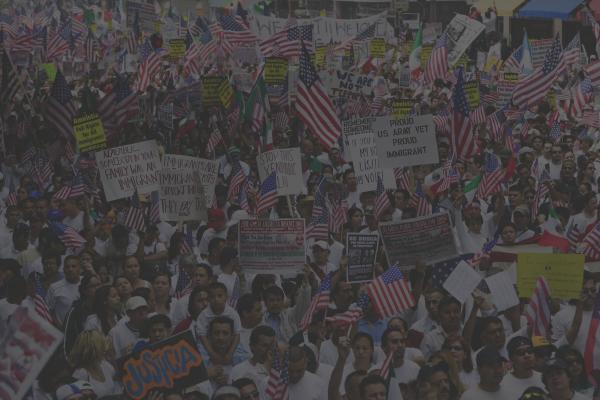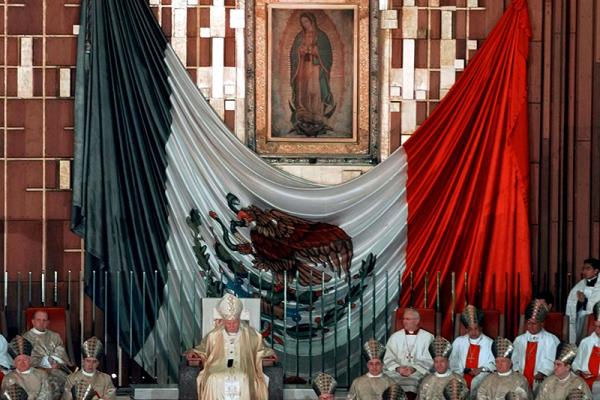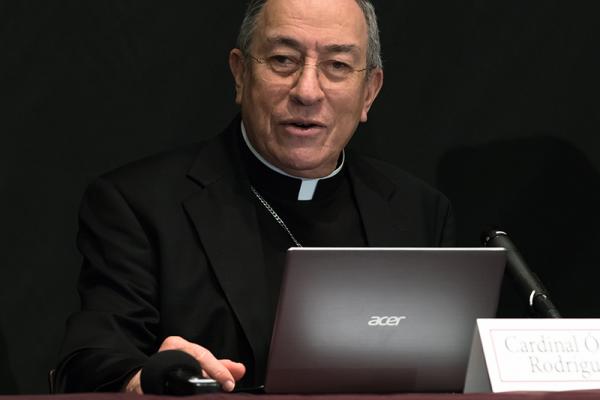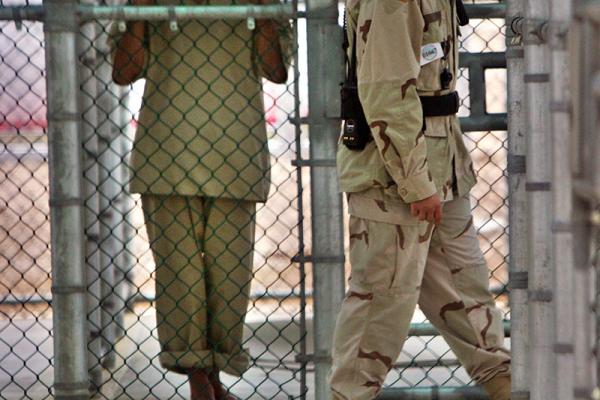On their first day in office, newly elected members of the U.S. House of Representatives take an oath on the House floor — to “support and defend the Constitution of the United States.”
But before his election as Speaker of the House, Rep. Paul Ryan took another oath — this time to the so-called “Freedom Caucus,” a group of several dozen overwhelmingly white, conservative Congressmen from overwhelmingly white, conservative congressional districts.
Specifically, reports the National Review, the oath “extracts Ryan’s word that he will not bring up comprehensive immigration reform ‘so long as Barack Obama is president’ and, as speaker, even in the future, Ryan will not allow any immigration bill to reach the floor for a vote unless a ‘majority’ of GOP members support it.”
In short, in order to become the new speaker of the House, Ryan has vowed to block immigration reform from coming to a vote until January 2017 — at the earliest.
This is the second time Ryan has made a pledge on immigration reform. I remember the first: in 2014, Ryan called me at the Sojourners office, offering to help Christians pass comprehensive immigration reform. That led to meetings in Ryan’s office with key evangelical leaders about how to do that strategically, with Ryan telling us that the “evangelical factor” on immigration reform was something he had never seen before.
He promised us on several occasions that he would help bring immigration reform bills to the floor of the House. Many other Republicans promised the same thing to evangelical pastors who came to visit them from their districts.
Henri Nouwen’s unpublished works are set to be released by Convergent Books, according to Religion News Service columnist Jonathan Merritt.
The Dutch Catholic priest who wrote masterpieces like The Wounded Healer, The Return of the Prodigal Son, and Life of the Beloved, left behind enough material for multiple volumes to come over the next few years.
As he poured the gallon jug of kerosene over his head, onlookers reacted with disbelief. Before anyone knew what to do, he lit a match. In one terrible instant, 31-year-old Quaker Norman Morrison set himself ablaze in front of the Pentagon, just 40 feet below the 3rd floor window of Secretary of Defense Robert McNamara.
Moments before ignition, Morrison passed his 11-month-old daughter, Emily, to a bystander. His wife and two other children were in Baltimore that day, unaware of what this young husband and father had planned.
Though his terrifying act of self-destruction, Morrison brought the Vietnam War home to a country that was still largely unaware of the widespread atrocities taking place in Southeast Asia. It was hard for most Americans to comprehend the true human cost of U.S. carpet bombing, and the incineration of whole families in the name of peace and security. Even the U.S. military officials leading the war effort did not understand on a visceral level what it meant to burn human beings alive in Vietnam.
Norman Morrison provided a live demonstration.
A Honduran cardinal who is a top adviser to Pope Francis said he expects the pontiff to travel to Mexico’s border with the U.S. when he visits that country in February.
“I think it’s almost sure he will go to the border. I don’t know which cities,” said Cardinal Oscar Rodriguez Maradiaga, who heads a special council of nine cardinals that Francis set up in 2013 to advise him on reforming the Vatican.
“Knowing him, he will go … I don’t know yet where,” Rodriguez said in an interview on Nov. 3 before taking part in a Fordham University panel on “Laudato Si’,” the pope’s groundbreaking encyclical on the moral duty to protect the environment.
Religious institutions have, at times, been at the forefront of progress by engaging society with forceful spiritual leadership. The engagement of Cesar Chavez and the United Farm Workers grape boycott in the 1960s, for example, was part phenomenal leadership, part righteous struggle.
And while most Americans know the pivotal impact of Rev. Dr. Martin Luther King, Jr., and the Southern Christian Leadership Conference in the Civil Rights Movement, there were many other leaders who held prominent roles in similar religiously-inspired movements. Rev. Dr. Anna Howard Shaw (1847-1919), for example, overcame enormous discrimination and was not only ordained as a minister, but also earned a medical degree from Boston University.
Shaw was a formidable speaker, and lectured throughout the United States and Europe in favor of women’s suffrage, temperance, and progressive causes she believed would relieve the exploitation of women.
Despite intense opposition from some conservatives and new revelations of financial scandals in the Vatican, Pope Francis is at peace with the reformist course he has set for the Catholic Church, according to a cardinal who is a leading adviser to the pontiff.
Honduran Cardinal Oscar Rodriguez Maradiaga also said that the latest reports of excessive spending and political maneuvering by officials of the Roman Curia only confirm the need to press ahead with an overhaul of the papal bureaucracy.
“You know, everybody that is trying to make good will have opposition,” Rodriguez said Nov. 3 after a conference at Fordham University on Francis’ environmental agenda.
How far does the U.S. military have to go to provide religious accommodations for locked-up al-Qaida terrorism suspects?
That’s the question before a military judge who is weighing whether female guards should be banned from touching detainees at Guantanamo Bay, Cuba.
Five of the military’s “high-value” detainees asked the judge Oct. 30 to permanently forbid women guards from touching the prisoners. Their Muslim traditions, they say, prohibit women other than their wives or relatives from touching them.
But the two female guards who sometimes shackle or escort the detainees say a ban on touching violates their equal employment rights. They have won support from members of Congress and the Obama administration who called the ban “outrageous.”
In church last spring, our children learned the song, “Jesu, Jesu Fill Us with Your Love.” It includes the line, “neighbors are nearby and far away,” which gave our five-year-old son pause.
“Are neighbors far away?” he asked at breakfast recently.
“No,” I said.
“They’re nearby.”
When I bought eyeglasses for the first time, I suddenly and dramatically discovered the clarity I had been missing. But I also had to be careful walking down stairs, as I had a hard time judging depth. I got headaches from the intensity of my newfound vision. I had to adjust to a new way of seeing.
Recently, I invited Albert Rizzi to co-preach a sermon with me. He had unexpectedly lost his sight in 2006 at the age of 41. In 2009, he launched a non-profit company advocating that all blind persons be entitled to acceptance and freedom from discrimination. He works to develop accessible computer accounting software to help reduce the national 60 percent unemployment rate among the blind.
Rizzi’s blindness became a national news story in 2013 when he and his guide dog, Doxy (short for doxology), were ejected from an airplane because he could not get Doxy to crawl under the seat for takeoff. They had been on the tarmac for nearly two hours, and the dog had become restless. In protest of Albert and Doxy’s eviction, the 45 other passengers joined Rizzi and Doxy in departing the plane and the flight was cancelled.
I was at a retreat recently with a facilitator who is known for pushing the envelope a bit regarding Roman Catholic Church teaching. The question posited throughout the weekend: Whom should we accept as brothers and sisters in faith?
During the retreat someone asked the facilitator how we should approach ministry in our churches in regard to the gay and lesbian community. A fellow retreatant replied, “Invite us to speak for ourselves.”
Who better to speak on challenging topics than those who are living inside the issue?








